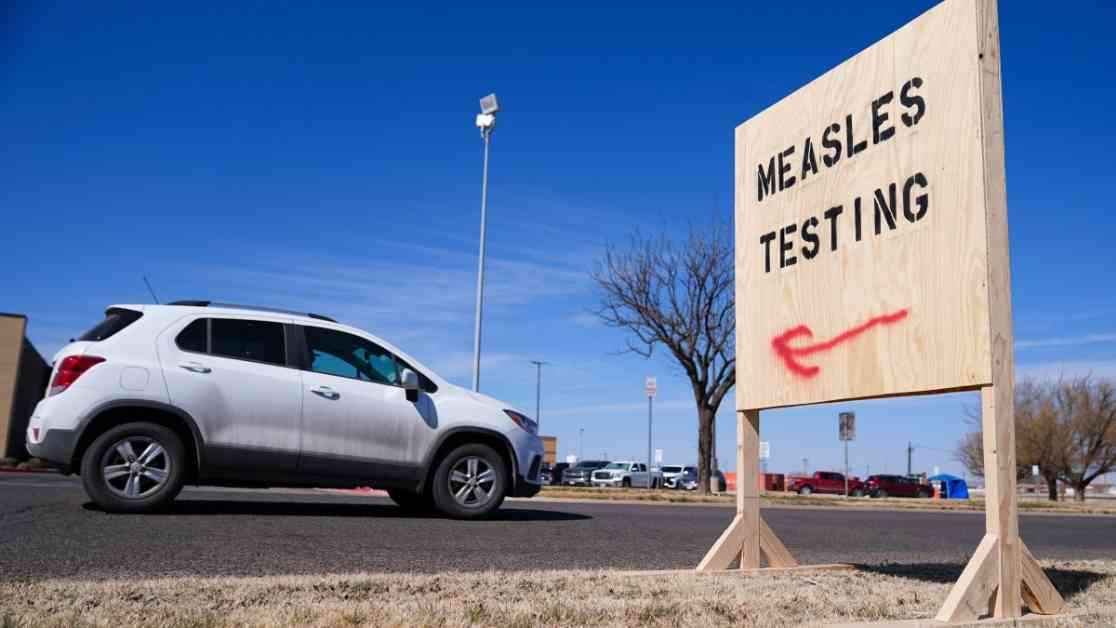A tragic development has unfolded in West Texas amidst a measles outbreak that has taken a devastating turn. The Texas Department of State Health Services has reported that the outbreak, which began late last month, has now reached a staggering 124 cases across nine counties, with the first casualty being confirmed by Texas Tech University Health Sciences Center spokesperson Melissa Whitfield. The victim, whose age remains undisclosed, succumbed to the illness overnight, marking the first death caused by this escalating health crisis.
The Measles Outbreak in West Texas
The measles outbreak in West Texas has sent shockwaves through the region, striking a community in rural West Texas that spans across a vast expanse of small towns peppered with oil rigs. The outbreak has garnered attention not only for its rapid spread but also for the tragic consequences it has brought upon the residents of this tight-knit community. With the virus claiming its first victim and infecting over 120 individuals, the situation has become increasingly dire, prompting urgent action from health officials to contain the outbreak.
Understanding Measles and Vaccination
Measles, a highly contagious respiratory virus, poses a significant threat to those who are susceptible to the illness. According to the U.S. Centers for Disease Control and Prevention, up to 9 out of 10 individuals who come into contact with the virus may contract it, highlighting the urgent need for preventive measures. The measles, mumps, and rubella (MMR) vaccine has proved to be a safe and effective tool in combating measles infections and preventing severe cases of the disease. Despite misconceptions and misinformation surrounding the vaccine, studies have consistently shown that vaccination is crucial in preventing the spread of measles and safeguarding public health.
The Importance of Vaccination Rates
The recent outbreak in West Texas underscores the critical importance of vaccination rates in safeguarding communities against infectious diseases. High vaccination rates, often referred to as “herd immunity,” play a pivotal role in preventing the spread of diseases like measles, particularly in close-knit communities where transmission can occur rapidly. However, declining vaccination rates and the rise of exemptions based on personal beliefs or religious grounds have contributed to a resurgence of measles cases in recent years, posing a significant public health challenge.
Efforts to Contain the Outbreak
In response to the escalating measles outbreak in West Texas, health officials have ramped up efforts to contain the spread of the virus and educate the public on the importance of vaccination. Regular vaccination clinics and screening initiatives have been implemented to reach as many individuals as possible, with a particular focus on school-aged children who are at higher risk of contracting and transmitting the virus. In neighboring New Mexico, health authorities are also stepping up vaccination efforts to curb the spread of measles and protect vulnerable populations from the disease.
As the measles outbreak in West Texas continues to unfold, the importance of vaccination and community-wide cooperation in combating infectious diseases has never been more apparent. The tragic loss of life in this close-knit community serves as a stark reminder of the urgent need for preventive measures and proactive public health interventions to safeguard vulnerable populations and prevent further tragedies.


